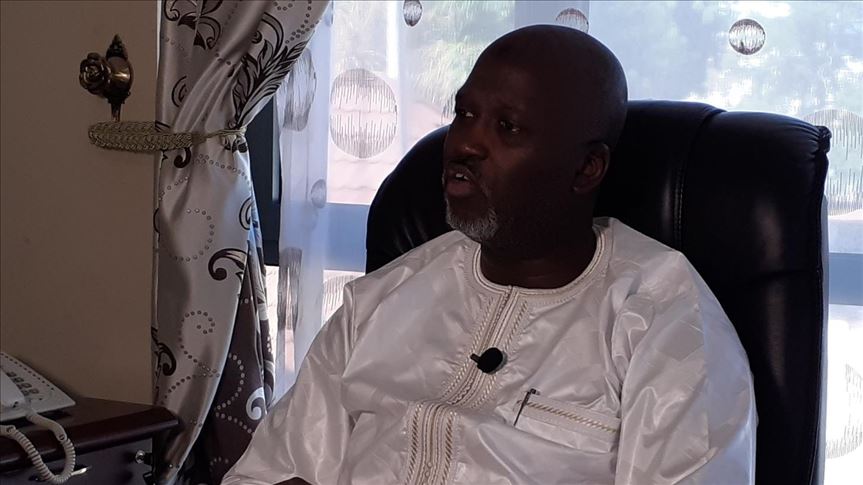It is about time the global community’s conscience is awakened to the Rohingya’s plight, says Gambia’s justice minister
 Gambian Justice Minister Abubacarr Tambadou
Gambian Justice Minister Abubacarr Tambadou
BANJUL, Gambia
Myanmar has failed in its obligations to
protect the rights of its Rohingya Muslim minority under the UN Genocide
Convention, said Gambian Justice Minister Abubacarr Tambadou.
Tambadou recently spoke with Anadolu
Agency at his office in the capital, Banjul, as he prepared his
statement to be presented at the International Court of Justice (ICJ) in
The Hague, the Netherlands.
He will represent Gambia, a small West African nation of roughly 2 million people, in its case against Myanmar.
Tambadou left for The Hague last Friday.
He is being helped on the case, which is being financed by the
Organisation of Islamic Cooperation (OIC), by U.S. law firm Foley Hoag.
“Gambia is taking this case to the
International Court of Justice because Gambia believes that Myanmar has
violated the Genocide Convention,” said Tambadou.
“It is also about time that the
conscience of the international community is awakened to the plight of
the Rohingya…What is going on in Rakhine state is despicable — they are
horrible, and the world must hold Myanmar accountable for these actions,
and one way to do this is the legal process that Gambia has engaged
in.”
This is the first time a country that is
not directly affected by a mass atrocity crime is taking another country
before the ICJ.
Gambia and Myanmar are state parties to
the Genocide Convention, which provides obligations to be fulfilled,
including the prevention and punishment of the crime of genocide.
Under the convention, Tambadou said, Myanmar has an obligation “not to commit genocide.”
Gambia is emerging from two decades of
dictatorship with a myriad of problems. While the government’s move has
generated lot of support within, there are critics who argue that the
government should focus on pressing internal issues.
But Tambadou said Gambia has an
obligation under the Genocide Convention like any other state when it
comes to the prevention and punishment of genocide.
“It does not matter whether it is a weak or a powerful state,” he stressed.
Meanwhile, Tambadou noted that he had
visited a camp in Cox’s Bazar, Bangladesh inhabited by Rohingya refugees
in early 2018. He said what he saw reminded him of the Rwandan
genocide.
“As I sat there with these refugees and
they recounted their stories to me, stories of helplessness in the face
of mass rape, mass killing…it brought back painful memories of the 1994
Rwandan genocide. The stories are all too familiar to me with a decade
and a half of interaction with victims of that genocide.
“The OIC was already doing a lot in terms
of the political and diplomatic efforts, and I thought that is an
avenue that could be used to hold Myanmar accountable,” he said.
The ICJ will hold its first hearings on
Gambia’s genocide case against Myanmar from Dec. 10-12. Gambia is asking
the court to order provisional measures to protect the rights of ethnic
Rohingya under the UN Genocide Convention.
“Gambia believes in the international
rule of law, and we have complete confidence in the ability of the
International Court of Justice to deliver justice. We believe that
states should be able to settle their disputes peacefully, and the ICJ
is one such forum where disputes between states can be settled
peacefully,” he added.
A persecuted people
According to Amnesty International, more
than 750,000 Rohingya refugees, mostly women and children, have fled
Myanmar and crossed into Bangladesh after Myanmar forces launched a
crackdown on the minority Muslim community in August 2017, pushing the
number of persecuted people in Bangladesh above 1.2 million.
Since Aug. 25, 2017, nearly 24,000
Rohingya Muslims have been killed by Myanmar’s state forces, according
to a report by the Ontario International Development Agency (OIDA).
More than 34,000 Rohingya were also
thrown into fires, while over 114,000 others were beaten, said the OIDA
report, titled “Forced Migration of Rohingya: The Untold Experience.”



No comments:
Post a Comment
Note: Only a member of this blog may post a comment.